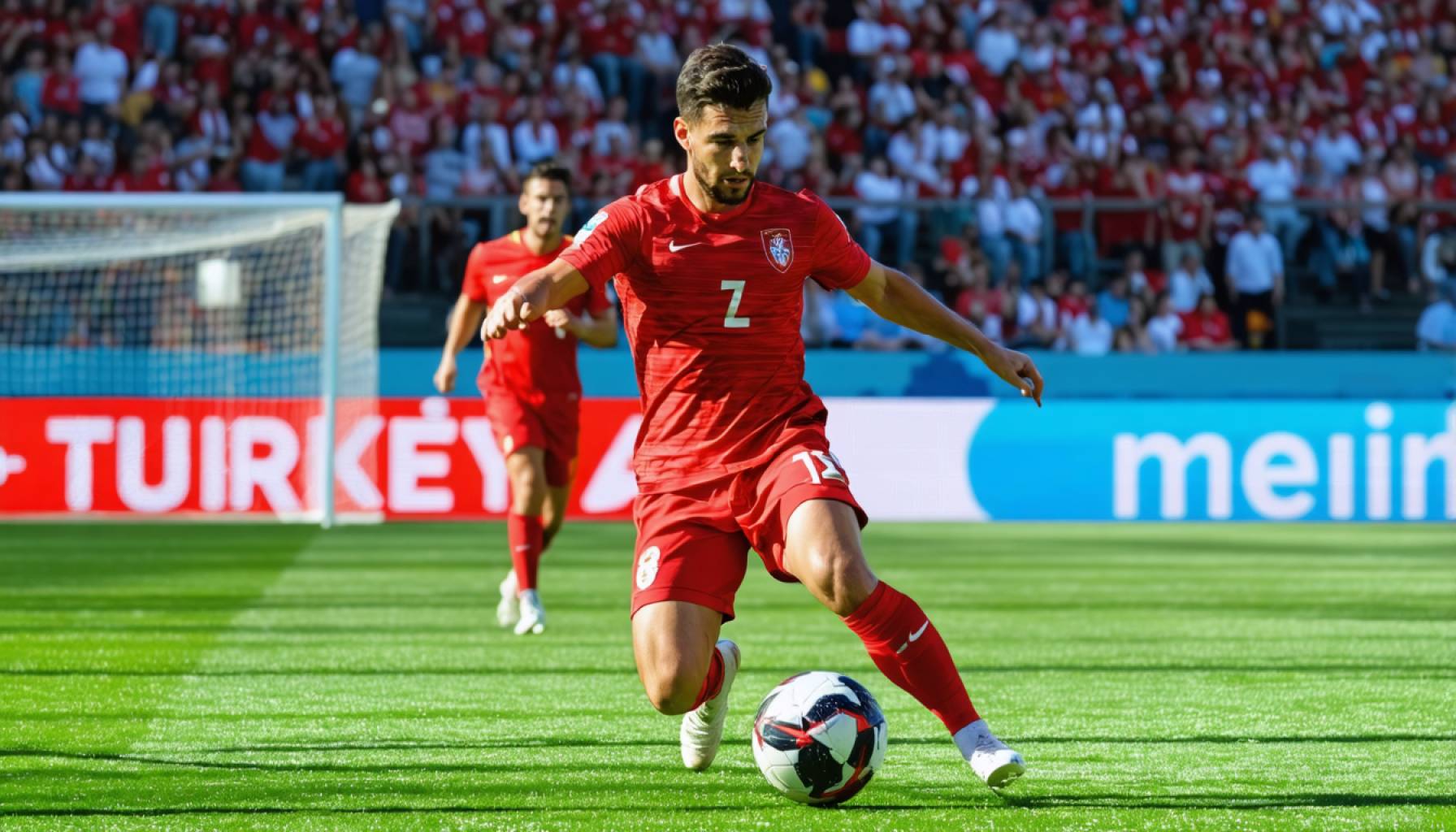- The Montenegro-Turkey football match highlighted the complex world of international sports advertising rights.
- Advertising rights during such games are managed by the host nation’s football federation, emphasizing their autonomy.
- The home country commands the rights to sell advertising spaces during prestigious international matches.
- This practice reflects global norms and showcases the hosting country’s economic and cultural image.
- TV networks focus on broadcasting rather than managing advertising rights, which remain with the host nation.
- The event underlines not just the mechanics of sports advertising, but also national sovereignty and economic control.
- International sports events intertwine economic dynamics, media, and national pride, offering deeper stories beyond the game.
The recent Montenegro-Turkey football match brought more than just the clash of titans on the field; it highlighted the intricate world of international sports advertising rights. As fans around the globe tuned in, few realized who truly orchestrated the dynamic ads encircling the pitch.
Painted with the fervor of national pride, this football match played out not just as a sporting event, but as a showcase of international advertising protocol. Each billboard and LED board that flickered during the match, displayed advertisements curated by the Montenegro Football Federation. It’s a less-discussed aspect of international games, yet one that underscores the autonomy and authority of the hosting nation.
In the realm of international sports, each nation stands as the maestro of its own concert. Prestigious matches abroad embody a longstanding tradition: the home country’s football federation commands the rights to sell advertising spaces within their borders. This principle aligns with the global norms, mirroring Turkey’s own handling of advertising rights for matches played on its soil.
This independence not only empowers hosting nations economically but also culturally, permitting them to project their image on a global stage. As TV networks like Turkey’s TV8 broadcast these matches, they remain detached from the mechanics of advertising sales, focusing instead on bringing the magic of the game to screens across the world.
The takeaway here is not just about the mechanics of sports advertising, but an appreciation for the sovereignty and economic control each nation exercises during international events. As fans cheer for their favorite teams, there is a parallel world of rights and negotiations, mirroring the struggles and harmonies of international relations themselves.
In the theater of global sports, each play carries implications beyond the goals and tackles, weaving stories of economic prowess, media dynamics, and national pride. Understanding this can deepen our appreciation of games we love and incite curiosity about the unseen narratives gracing the world’s grandest stages.
The Untold Story Behind International Sports Advertising Rights
How International Sports Advertising Rights Empower Nations
The Montenegro-Turkey football match was more than just a thrilling face-off between two teams; it was a vivid display of the intricate world of international sports advertising rights. By examining how advertising works around these matches, we gain insights into not only the economic power wielded by hosting nations but also the cultural narratives projected onto a global canvas.
Understanding International Advertising Protocol
In the world of international sports, particularly football, the home country’s football federation maintains exclusive rights to sell advertising spaces for matches held within its territory. This protocol is consistent worldwide; whether in Montenegro or Turkey, the host nation retains control over these advertising rights. This system emphasizes both the economic autonomy and cultural presentation of the host nation, allowing them to craft a narrative that resonates with both local and global audiences.
Real-World Use Cases and Implications
– Economic Benefits: Hosting football matches offers a lucrative opportunity for nations to showcase domestic brands to a global audience, potentially driving significant revenue.
– Cultural Messaging: The advertising space becomes a canvas for nations to highlight their cultural heritage, traditions, and values, creating a distinct impression among international viewers.
Market Forecasts & Industry Trends
The global sports advertising market is projected to grow significantly, driven by increased viewership and the integration of digital technologies. As nations continue to host international events, the sophistication of targeted advertisements and dynamic screens like LED boards is expected to evolve, offering personalized and interactive viewer experiences. This growth trajectory presents opportunities for emerging markets to capitalize on international sports events as platforms for economic development.
Controversies & Limitations
Despite the advantages, there are challenges associated with sports advertising:
– Over-commercialization: Excessive advertising may detract from the viewer’s experience, causing a backlash from fans who prefer an uninterrupted focus on the game.
– Political Influence: The types of advertisements allowed during such events can sometimes become a point of contention, especially if political or controversial messages are involved.
Quick Tips For Nations and Advertisers
– Strategic Partnerships: Collaborate with international brands to maximize both economic benefits and cultural reach.
– Leveraging Technology: Utilize technologies such as AI and data analytics to streamline advertisement slots for optimal engagement and revenue.
Related Links
– For more on international sports events and their economic impact, visit the [FIFA](https://www.fifa.com) website.
– Discover how global advertising strategies are evolving at [Global Marketing Alliance](https://www.the-gma.com).
By appreciating the intricate dynamics of sports advertising rights, we can better understand the hidden layers of international sports. These elements not only shape our viewing experiences but also reflect the broader narratives of cultural identity and economic strategy. Whether a nation is hosting a football match or another global event, the interplay between advertising, culture, and economics remains a fascinating and impactful aspect of the sports world.
